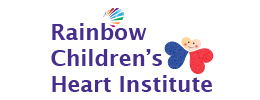Heart diseases or cardiovascular diseases aren’t too uncommon these days, thanks to the unhealthy lifestyle that we all lead. Gone are days when having a ‘heart problem’ was an adult thing. In recent times, the risk of heart disease has significantly increased among young children, which is worrisome for several reasons. Heart diseases in children often occur as a result of congenital and acquired factors. However, these days, an unhealthy lifestyle and poor eating habits can also put your younger one at risk of potentially harmful heart conditions.
Since the seeds of serious heart conditions are laid at a young age, pediatric cardiologist suggests parents become extra cautious of their little one’s heart starting at a very young age. Influencing their child’s behaviour, eating habits, and lifestyle is in the hands of the parents, and only they can help their child steer clear of any potential heart risks. So, on that note, here are a few ways in which all parents can keep their children at bay from heart problems, recommended by the best pediatric cardiologist at Rainbow Children’s Heart Institute.
A Healthy Diet Goes a Long Way
It’s no breaking news that a balanced diet works a long way in determining the overall health and growth of your child, and happens to be equally important for your little one’s heart. All parents must inculcate healthy eating habits in their children starting at a young age. Start by monitoring and regulating the daily calorie intake of your child. Consuming a high-calorie diet can lead to childhood obesity, which is one of the leading causes of heart diseases in children.
In addition to that, you need to keep a check on the amount of fat they consume and limit the consumption, especially that of saturated fats. Here are a few dietary changes you can make:
- Feed your children a well-balanced diet, one that consists of fruits, vegetables, whole grains, lean proteins, and low-fat dairy.
- Make sure the diet is rich in fibre and free of saturated fats.
- Prevent them from snacking in between meals.
- Avoid taking them to fast food restaurants too often.
- Keep a check on the portion size.
- Keep your children at a distance of sugary drinks, and help them make a shift to healthier drinks like milk, juices, etc.
Promote Regular Exercise
Lethargy or a sedentary lifestyle is another one of the leading causes of obesity among children. Most children today spend hours staring at screens, without realising the harm it can bring their way. This pushes them further apart from indulging in outdoor games, and all other sorts of physical activities. This can take a serious toll on your little one’s heart in the long run and thereby needs to be taken care of. To avoid just that, the pediatric cardiologist at Rainbow Children’s Heart Institute recommends indulging in about 60-120 minutes of moderate physical activity for children on a daily basis. You can get your child enrolled in a sport of their choice, or simply ask them to play outside, run, jog, or cycle in routine.
Keep A Check On their Lifestyle Habits
Cinema, social influences, and lack of proper parental guidance, among several other factors can push a child towards unhealthy lifestyle habits such as smoking. These two issues aren’t very uncommon in society, and several children end up picking up these habits at some point. And as obnoxious as these habits are, they can also be super-risky for your child’s heart. Smoking can damage your heart and blood vessels permanently and may increase the risk of stroke. This makes it important for all parents to keep an eye on the lifestyle habits of their children, and keep them away from developing these habits by guiding them, and by avoiding smoking in front of them.
Keep a Check On The Symptoms And Keep In Touch With Paediatric Cardiologist
Aside from the various lifestyle factors, several congenital and acquired factors can also increase a child’s risk of developing heart disease. Thereby, it is suggested that all parents must be mindful of any history of heart disease in the family and discuss it with a paediatric cardiologist as early as possible. Additionally, you constantly monitor your child’s health, and keep a check for any symptoms such as shortness of breath, weakness, fatigue, etc., especially when you know they are at risk, and discuss it with a doctor on time. This will help in early detection and treatment of any potentially harmful condition.
